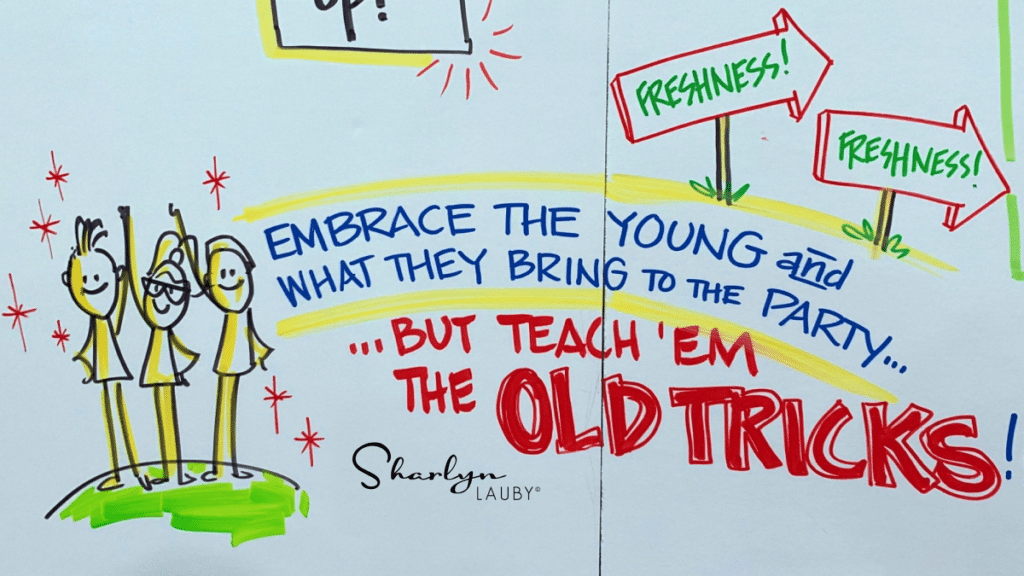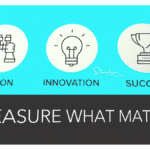
(Editor’s Note: Today’s article is brought to you by Southern Cross University, a pioneer in online learning. Since 1970, they have been focused on delivering postgraduate courses to working professionals around the globe. In 2018, they were ranked one in the world’s Top 100 for higher education. Enjoy the article!)
Building professional relationships (i.e. “networks”) can open doors to new career opportunities – both internally and externally. Many companies post open positions internally before going to the outside, turning to the power of their existing workforce’s networks. In fact, fifty-seven percent (57%) of jobs are filled through a networking contact. Beyond career benefits, networking can help you build your confidence, boost your communication skills, market yourself or your business, and learn new things.
However, networking can often conjure up images of awkward handshakes, forced icebreaker activities, and uncomfortable small talk. So how do we develop these important networking skills to receive its value? Even if you’re not ‘a natural’ at working the room, there are ways you can learn to do it effectively.
7 Steps for Successful Networking
Building a professional network takes time. It’s so important to think long-term when it comes to networking. I can’t begin to tell you how many times I’ve seen people ignore their network only to regret it later. Whether you’re a master networker or just starting out, these seven steps are a must:
Develop connections rather than transactions. There’s nothing wrong with attending a professional event with some networking goals in mind. But do try to also have some fun and enjoy your time. Networking isn’t supposed to be drudgery. Being too intentional about a goal to “meet XX people” or “make XX new contacts” can add unnecessary pressure.
Maintain a professional and positive attitude. People who are most successful at networking have a positive, professional attitude that makes others want to know and connect with them. It should go without saying but let me say it anyway – avoid making negative comments about the event, your workplace, or other people. This is likely to drive others away and could come across as unprofessional.
Be an active listener. Over 60% of business people consider being a good listener as the most important characteristic of a great networker. Listening makes others feel heard and will leave them with a great impression of you and the conversation. In addition, actively listening can help you engage in more genuine conversations.
Build trust through authenticity. Speaking of genuine conversations, take time to establish trust with people. Being authentic will help build your credibility and keep you top of mind after the event. You can do this by actively listening (see #3), asking questions, finding something you may have in common, and possibly making suggestions or recommendations.
Follow-up! Actions speak louder than words when it comes to networking. To be a truly great networker, you need to follow through on what you say you’ll do. It establishes your credibility. That means sending the link to an article you discussed or facilitating the introduction you promised to make. At the very least, make a positive impression by sending a LinkedIn connection request and/or message to your new contacts to thank them for their time or say that it was nice to meet them.
Connect people with opportunities. As great as networking can be for your own professional development, it’s also an exciting opportunity to help other people with theirs. Do your best to provide value to the new people you meet by facilitating introductions, sharing advice, offering feedback, or actively seeking ways you can help them. You’ll feel great knowing you’ve helped someone, and when an opportunity comes up for them to return the favor, it’s highly likely they will.
Have fun! Not every networking opportunity will be valuable. You won’t always walk away with new LinkedIn connections, plans for coffee meetups, or on-the-spot job offers. While networking can help us get those things, it shouldn’t always be what you ‘get’ out of it. When all else fails, have fun conversations and be a good person. In the end, being (genuinely) kind will only add to your integrity.
Make Your Network Your “Net Worth”
It’s been said that what matters most is not what you know, but who you know. Your networking skills will remain a key tool to help open doors for you professionally from college and throughout your career. You can use networking as a way to learn more about the jobs and industry you’d like to work in, meet people who can connect you with those opportunities, and develop the communication skills, which will be vital for any future role.
P.S. One group of people who understand the value of networking (and invest their time in it) are MBA students. In today’s technology driven society, useful connections aren’t always made in person. Online learning allows you to connect with peers, lecturers and other working professionals anywhere in the world, to kickstart your networking activities. You can connect with people across the globe via online networks and courses of study (which many business students across the world will attest to), such as Southern Cross University engaging Master of Business Administration (MBA) program. Check it out when you have a moment.
47







Joyce Maroney says
Great ideas, Sharlyn. You can’t wait until you need a network to build one.
Sharlyn Lauby says
You are so right Joyce. Building a network takes time.
Recruiting Animal says
Networking is worthwhile but I’m a 3rd party agency recruiter and I get tons of requests to connect from people all over the world. And I have to wonder if they think I’m recruiting in Cairo or India or if they think, “Hey, it’s free and you never know what’s going to happen so why not?”.
I get lots of requests from people in faraway countries as well who are relocating to my city and they want me to meet with them. I have to assume that they don’t know that an agency recruiter charges a large fee for people with specialized experience and usually that rules out placing people without local experience, for instance in a marketing job.
I used to accept all connections but as soon as I do people message me for help so I’m obliged to reply with advice or an explanation of what I do even if I can’t do anything for them and that’s time consuming.
I get hundreds of these requests so my point here is that while it’s good to connect with people and it’s good to take flyers, recognize a long shot and don’t feel bad if your they don’t pan out.
And while a request for an informational interview with someone in your targeted company or targeted profession can be worthwhile, that’s not the same as asking a recruiter for time. Because a conversation with a job hunter is an odd occurrence for the average professional so she can probably afford to give the odd person a half hour. But a recruiter gets an overwhelming number of requests for these meetings and conversations which will bring her not benefit at all.
Sharlyn Lauby says
Totally agree! Quality beats quantity every time.